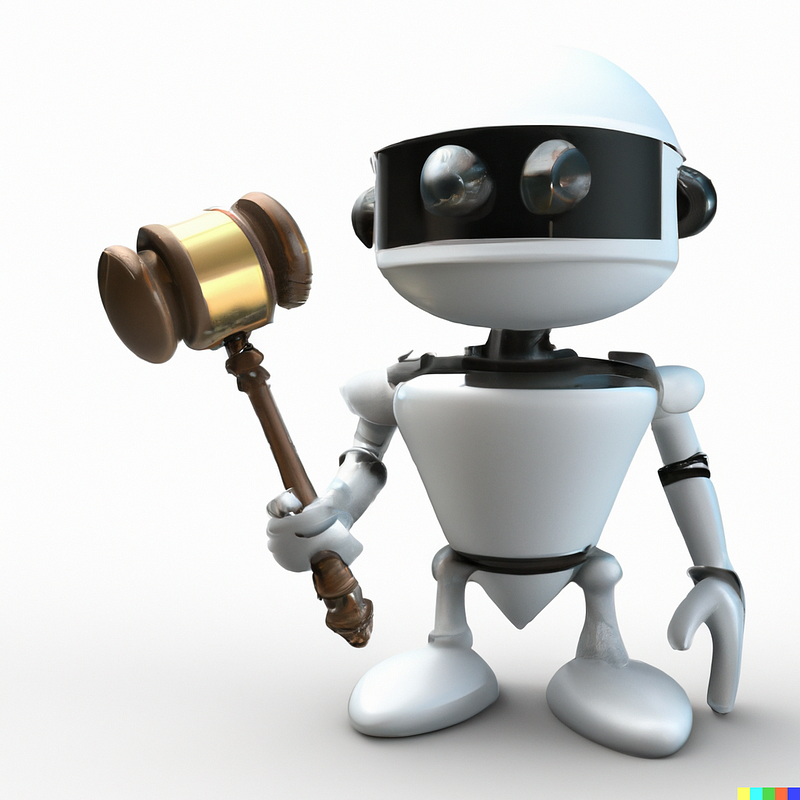Would You Allow AI to Represent You in Court? Here's My Take
Written on
The Rise of AI in Modern Society
AI has taken center stage in the 21st century, with its applications growing more evident each day. From self-driving vehicles to tailored streaming suggestions, artificial intelligence is reshaping various facets of our lives.
But have you ever considered the possibility of an AI representing you in a courtroom? At first glance, this notion may seem far-fetched, yet I believe it deserves serious consideration. Here’s why.
The Intelligence Behind AI's Processing Power
In the realm of law, thorough research and analysis are paramount. Attorneys frequently invest countless hours combing through case law, statutes, and legal publications to build their cases. This is precisely where AI excels.
Advanced algorithms, particularly those equipped with Natural Language Processing (NLP), can sift through extensive datasets with remarkable efficiency—surpassing human capabilities in speed, comprehension, and retention of information.
AI can parse through years' worth of legal documents, spot trends, draw conclusions, and deliver pertinent insights in a fraction of the time it would take a human to do so. Innovations like the ROSS AI platform are already making waves in legal research, and applying these advancements to courtroom representation could significantly enhance accuracy and thoroughness compared to traditional methods.
The Impartiality of AI in Legal Representation
Human beings are inherently prone to cognitive biases. While society has made strides in managing these biases, they are often not fully eradicated.
Such biases can, even if unconsciously, skew a lawyer's decision-making, strategy, or interpretation of legal matters. In contrast, AI operates without emotional interference or biases, relying strictly on data and logical reasoning.
This objectivity could foster fairer court proceedings, with judgments based solely on factual evidence and established legal precedents, thereby minimizing the chances of biased decisions.
Making Legal Representation More Accessible
Access to quality legal representation can often be financially prohibitive, creating significant barriers for many individuals seeking justice.
AI's scalability and cost-effectiveness present an opportunity to democratize legal services. An AI-driven legal framework could provide affordable, high-quality representation to a broader audience, dismantling economic obstacles to justice.
For instance, the British startup DoNotPay offers a glimpse into this transformative future. Its AI-driven ‘chatbot lawyer’ provides free legal counsel and has successfully contested thousands of parking fines, making legal support available to those who previously could not afford it.
A Collaborative Approach: AI and Human Lawyers
While the idea of AI serving as legal representation is promising, I advocate for a hybrid approach that harnesses the strengths of both AI and human legal professionals.
AI’s capacity for swift data analysis, objectivity, and scalability can lay a solid foundation for a case. Meanwhile, human lawyers are indispensable for client interactions, courtroom appearances, and any legal matters that require intuition, empathy, negotiation skills, and ethical considerations—qualities that AI has yet to master.
Conclusion: Preparing for a Transformative Legal Future
Although the notion of AI representation in court may appear revolutionary, the potential advantages are substantial. As the landscape of AI continues to evolve, and as we refine its integration with the legal profession, such a scenario is becoming increasingly plausible. With appropriate safeguards, AI could usher in a more efficient, unbiased, and accessible legal system.
So, would I permit an AI to represent me in court? Given the compelling, data-driven advantages and the potential for a paradigm shift in legal representation, my answer is a definitive ‘yes.’ As we contemplate the future of legal practice, the real question is: would you?
I’m eager to hear your opinions—discussion is essential! :)
Luca

Chapter 2: AI and Legal Representation
In the video "Lawyers: Artificial Intelligence is here! Watch me use it," the speaker explores the current capabilities of AI in the legal field, showcasing its potential through real-world applications.
The second video, "AI in the Law: Pitfalls and Precautions for Courtroom Use," discusses the challenges and considerations of integrating AI into legal processes, ensuring ethical standards are maintained.